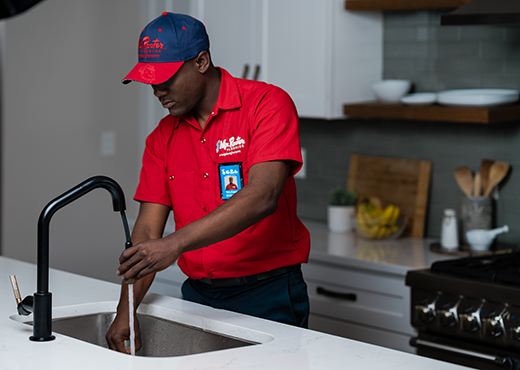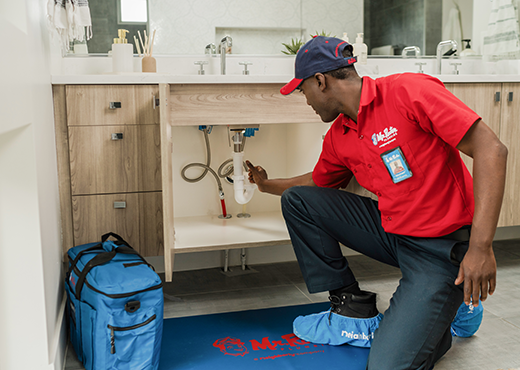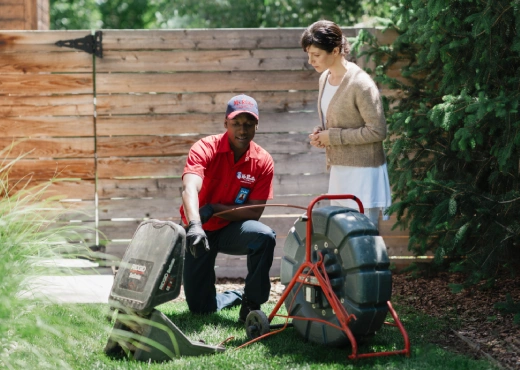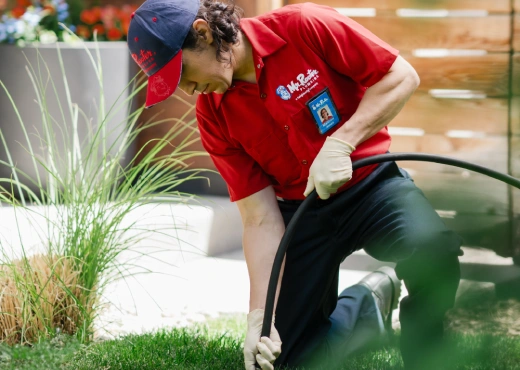Your home’s water heater is in place to ensure you always have the hot water you need to do dishes and laundry, bathe, and more. Mr. Rooter Plumbing of Tupelo & Oxford offers professional residential water heater repair and replacement services for homeowners in Tupelo, MS. It’s easy to take hot water for granted until you get the unpleasant surprise of taking a cold shower to start your day. Our professional plumbers offer hot water repair and replacement services to ensure your home has all the hot water you need. Our licensed plumbers will repair your water heater, if possible, but a replacement may be necessary. We can help you answer the question, “Is it better to repair or replace my water heater?”. Learn more and get in touch with us today to request a job estimate.

The Benefits of Upgrading Your Water Heater
Once your water heater has reached the end of its lifespan, it’s time to choose the best replacement model. Mississippi homeowners will want to choose a new water heater that is efficient and affordable to help them save money on monthly utility bills. Mr. Rooter Plumbing of Tupelo & Oxford will ensure your new appliance complies with federally mandated standards. Having hot water on demand without having to wait around is very desirable. Your outdated water heater might only produce lukewarm water if there’s a leak in the tank. Our team will recommend the right water heater for your home based on your space limitations and the amount of water you consume. We will replace your existing water heater with one of the following options:
- Conventional Water Heater – Traditional water heaters have a large tank to store water and use electrical energy or gas to heat the water. We can install various sizes of tanks that are highly efficient and can reduce your heating bills by as much as 7%.
- Tankless Water Heater – If you want hot water instantly, a tankless water heater is right for your home. These on-demand water heaters take up less space and could save you up to 30% on energy costs.
- Hybrid Water Heater – These combination water heaters can save you up to 60% on energy costs and combine a heat pump with a conventional tank storage water heater.
Schedule Water Heater Services Today
After repairing or installing your water heater, we recommend taking advantage of our regular maintenance services to keep your energy bills reasonable and minimize your water heater problems. We also offer 24/7 emergency plumbing services for your home’s water heater, sewer, drains, and more. Contact us today to schedule service or request a job estimate.
Residential & Commercial Services
We strive to provide you with choices to resolve your plumbing issue and perform professional workmanship on the option you choose. By calling on our team of skilled service professionals and qualified plumbers, you can be sure it will be Done Right.
-

Drain Cleaning
Learn More Drain CleaningLet Mr. Rooter get rid of your kitchen, bathroom, and sewer clogs.
-

Plumbing Repairs
Learn More Plumbing RepairsSchedule a repair before a small leak becomes a big headache.
-

Sewer Line Repair
Learn More Sewer Line RepairAvoid a costly sewer replacement with a sewer line repair.
-

Emergency Plumbing
Emergencies happen, and Mr. Rooter helps solve them quickly.Learn More Emergency Plumbing
Mr. Rooter Plumbing of Tupelo
Choose the plumbing services team in your area. When it comes to selecting the right team for your commercial or residential plumbing services, Mr. Rooter Plumbing is the right choice.
- Abbeville
- Aberdeen
- Ackerman
- Amory
- Artesia
- Baldwyn
- Banner
- Batesville
- Becker
- Belden
- Bellefontaine
- Blue Mountain
- Blue Springs
- Caledonia
- Cedarbluff
- Columbus
- Como
- Crawford
- Duck Hill
- Dumas
- Ecru
- Etta
- Eupora
- Gattman
- Gore Springs
- Greenwood Springs
- Guntown
- Hamilton
- Hickory Flat
- Houlka
- Houston
- Jackson
- Maben
- Mantachie
- Mantee
- Mathiston
- Mayhew
- Mississippi State
- Montpelier
- Mooreville
- Myrtle
- Nettleton
- New Albany
- Okolona
- Oxford
- Paris
- Pheba
- Plantersville
- Pontotoc
- Prairie
- Saltillo
- Shannon
- Smithville
- Starkville
- Steens
- Stewart
- Sturgis
- Taylor
- Thaxton
- Trebloc
- Tupelo
- University
- Van Vleet
- Vardaman
- Verona
- Walthall
- Water Valley
- Waterford
- West Point
- Woodland
Services We Provide
Let Us Call You

Join Our Team
Plumbing isn’t just about leaks, pipes, and gaskets - it’s about people. Mr. Rooter Plumbing franchisees offer you a career path for growth, and will treat you with the same respect and integrity that they treat their own friends and family, because at the end of the day, you can’t serve customers well without a happy, motivated, and committed team. Creating a culture with an exemplary work ethic is just as important as plumbing, and it’s part of everything Mr. Rooter Plumbing does.
